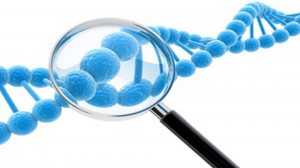Himachal Mukhopadhyay Shares Insight into the Growing Number of FDA-Approved Biosimilars
Himachal Mukhopadhyay has over 20 years in the healthcare industry, where he’s taken on roles in Operations, Delivery, Engineering, and Sales/Business Development. As a leader and strategic advisor, he studies ongoing healthcare trends to provide in-depth research and creative solutions to his clients. Below, he remarks on the recent advancements in biological medicine and the increase of FDA-approved biosimilars, which have major implications for healthcare patients around the world.
“Last year, the number of FDA-approved biosimilars nearly doubled thanks to advancements in technology and research,” says Himachal Mukhopadhyay. “Because of these approvals, patients everywhere can have access to specialized biological treatments at a much lower cost.”
Biological Medicine vs. Conventional Medication
Biological products are advanced scientific discoveries that encompass products like vaccines, gene therapy, blood components, and recombinant therapeutic proteins. Biologics are composed of a range of substances and often include living entities like tissues and cells to deliver effective treatment results where no other treatments may be available.
Conventional medication is largely made up of chemically-synthesized ingredients whose structures are well known after years of study and development. Biological medicine, on the other hand, is made up of complex biological mixtures that implement cutting-edge biomedical research to treat illnesses and conditions. In addition, these medications are more susceptible to damage from heat and microbial contamination. This tends to drive up the cost for healthcare patients as do the patented ingredients, processes, and price of past research.
Biosimilars Offer Nearly-Identical Alternatives
Himachal Mukhopadhyay notes that because biologics are so complex and specialized, they tend to be highly expensive and not a valid option for many patients whose illnesses or conditions could otherwise benefit from them. Biosimilars are copycat formulas of approved biologic medicine. The effectiveness of a biosimilar medication is tested against the effectiveness of the reference product in extensive laboratory and clinical research to determine if it’s a viable option for healthcare patients.
Before a biosimilar can be released for public use, it first must prove that it produces no meaningful differences from the product it imitates in terms of effectiveness and safety. Recently, the FDA has approved more biosimilars than ever, creating generic alternatives for patients around the world.
Biosimilars Mean Cheaper Treatment Options for Many
The biggest benefit of biosimilars for patients is the difference in cost. Patented formulas allow manufacturers to control pricing as they see fit, but biosimilars give competitors and secondary manufacturers the opportunity to provide similar medication at a fraction of the cost (similar to brand name medications and their generic counterparts).
“As the FDA approves more and more biosimilars, healthcare patients can expect to encounter more specialized treatment and care at much more affordable pricing,” says Himachal Mukhopadhyay. “In the future, this will mean greater access to complex medicine for international patients and ultimately a much healthier populace as a result.”
Caroline Hunter
Web Presence, LLC
+1 786-551-9491
email us here
Legal Disclaimer:
EIN Presswire provides this news content "as is" without warranty of any kind. We do not accept any responsibility or liability for the accuracy, content, images, videos, licenses, completeness, legality, or reliability of the information contained in this article. If you have any complaints or copyright issues related to this article, kindly contact the author above.

